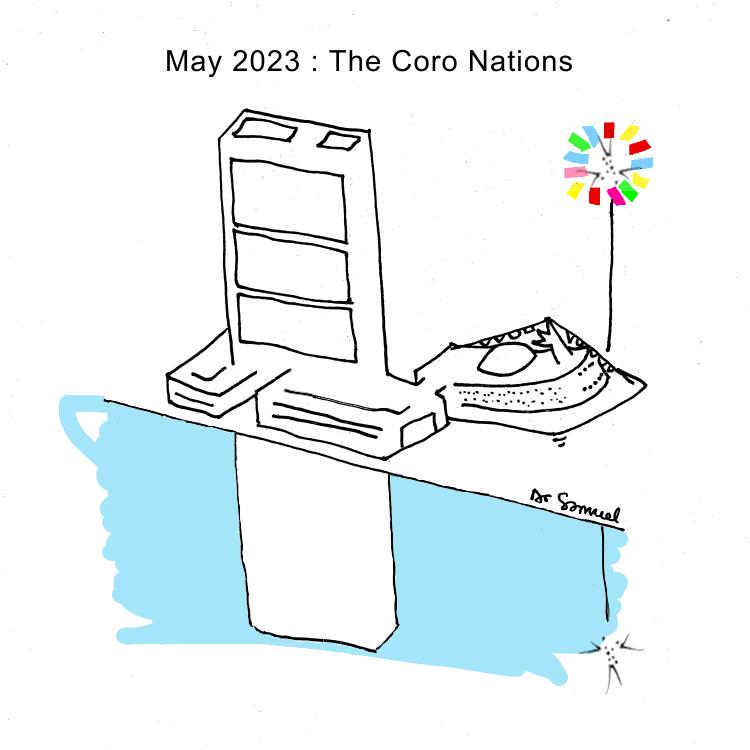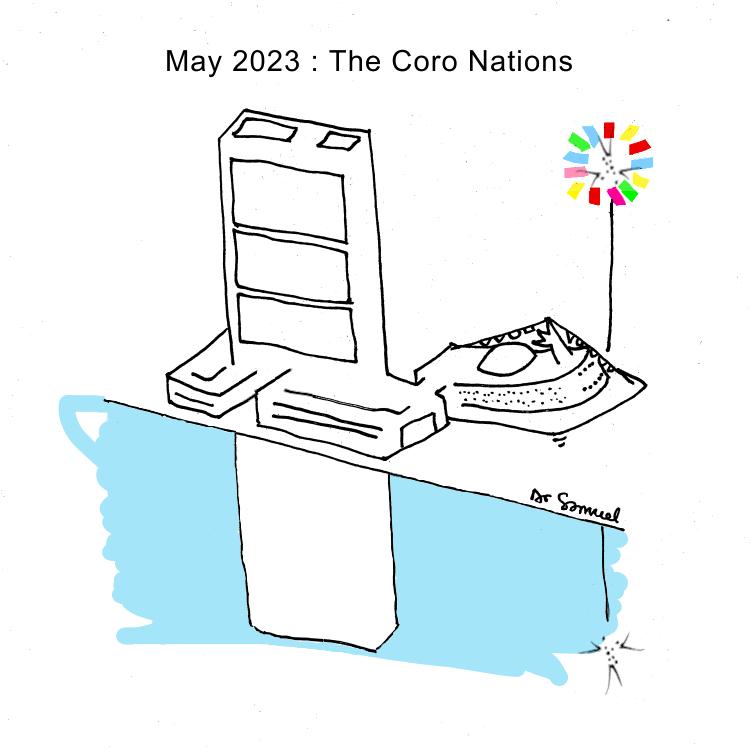
Last week WHO declared, in a twist of irony, the end of the COVID-19 global health emergency on European Tourism Day (5 May). As you might recall, the region was the epicentre of the COVID-19 pandemic for quite some time. Moreover, Europe accounts for approximatively 1 in 2 international tourists in the world. While thankfully the emergency stage is over, many seem to have (already?) forgotten that pandemic tourism can kill. Or perhaps we should say, prefer to gloss over?
So here’s a reminder: the French Caribbean, part of the outermost regions of the EU, “beat” COVID-19 and 6-month excess all-cause mortality records ( from the past 70 years ) in France after this region prematurely opened up for travel in summer 2021, in order to allow for a ‘rebound’ and ‘revival’ of the global tourism industry. More in general, COVID-19 mortality went up like wild fire across some of the most remote and pristine islands in the world, within days after quarantine restrictions for vaccinated travellers had been lifted – and this from Dominica over the Maldives and French Polynesia to Hawaii .
As far as I can tell, the draft EU Global Health Strategy does not say much about pandemic tourism. The very term “travel” also seems absent from the Zero draft of the forthcoming Pandemic Accord, currently discussed in Geneva corridors.
True, no doubt travel and tourism will be dealt with more in detail in the (also ongoing) International Health Regulations (IHR) amendments process. In fact, travel and tourism were one of the “raisons d’être” of the International Health Regulations adopted in 1969. That year is not just famous for putting the first man on the moon, it’s also a milestone in the schoolbooks on global health governance. What is far less known, is that the World Tourism Organization (UNWTO) was also created around that time on the foundations of the International Union of Official Tourist Propaganda Organizations (IUOTPO) – later rebranded the International Union of Official Travel Organizations (IUOTO).
In its own words, and very much in line with the zeitgeist of 1969, the organisation sought to be the “international stamp” on “erotic advertisements where the bikini vies with the landscape”, and other “…. charms of sex and sunshine (…) fascinating for our contemporaries”. One could hardly be surprised that the next 007 flick, “Live and Let Die” (1973), was the first to bring the United Nations to the big screen [ enter a 21st century emoticon].
UNWTO was established in 1970, and its membership includes a number of multinationals – some of which may certainly ring a bell like Iberia, MSC Cruises, Netflix, Airnbnb or Tripadvisor, … – inherently prioritizing growth while preaching the merits of trickle-down economics. These days they’re careful to use UN Sustainable Development Goals (SDGs) language. As you might recall, a young academic (Kohel Saito) has called the SDGs the “opium for the masses”. UNWTO doesn’t seem to disagree.
Importantly, UNWTO is also very much present in the pandemic control room. Since quite some years already, it has equipped itself with a “Tourism Emergency Response Network” (TERN) of private actors, with some privileged links to WHO as well. The network can “translate WHO recommendations”, sometimes even coming close to falsifying them. In May 2021, UNWTO interfered with WHO recommendations on COVID-19 vaccination by framing vaccination as a pass for global tourism. In any case, relationships between UNWTO and WHO seem rather ”close”, as they proved again in February 2022 on travel–related measures – with WHO supporting a “risk-based approach” and UNWTO the lifting of “travel restrictions”.
It will come as no surprise that UNWTO also has its own brochure. It is titled “Tourism and the Sustainable Development Goals: Journey to 2030” – in reference to the UN agenda. The brochure “aims to inspire governments, policymakers and tourism companies to incorporate relevant aspects of the SDGs”. The brochure is eye-catching. There are no close-ups of the stowaways – one obviously needs a visa to be part of the global tourism party – nor of the working poor; instead, the brochure firmly focuses on bamboo forests and waterfalls. Then comes the sea of words and numbers, which mirrors a survey of member states and enterprises on the many blessings of tourism, including only a few “Small Island Developing States (SIDS)”, by the way, like the Maldives.
Speaking of which, UNWTO recently depicted the Maldives archipelago as a “tourism success story for 40 years” on its website. Pandemic tourism clearly doesn’t fit that rosy picture, and thus isn’t mentioned. Neither does UNWTO advertise much the fact that the Maldives are currently plugging their lagoons and coral reefs for tourism, like the 4 km2 island Hulhumalé with its 30 or so air-conditioned hotels promoted online by one of UNWTO’s affiliated members. UNWTO also fails to mention Hulhumalé’s sister-island Thilafushi: a former lagoon, transformed into an island made of trash from tourism – aka “the Rubbish Island”. Rubbish island seems part of what the NASA called “preparing for rising seas in the Maldives” – a surprising way to “valorise” waste I must say –, under the same administration which used COVID-19 to turn US CDC against immigration.
Obviously, the UN has a soft spot for global tourism. Perhaps it doesn’t call it “the basis of unity between mankind” yet (as IUOTO sought to frame it), but “one of the wonders of the world” doesn’t sound bad either. And if all goes to SDG plan, the UN also considers global tourism as the “provider of decent jobs, stable incomes and the protection of our cultural and natural heritage.” This rather rosy take is, however, being nuanced by the IMF.
Indeed, tourism contributes to the global economy. Yet, it relies on a special industry, that may well fly some people to international congresses but is, among others, highly state-subsidised and governs relationships between post-colonial communities – oftentimes on the basis of visas. We must unlearn that (#DecoloniseGlobalHealth).
Favouring highly subsidised tourism corporations over other sectors is by no means sustainable. Not in terms of carbon footprint, nor when it comes to local community wellbeing, nor even to national economies – due to that pesky “Dutch disease” which also hits many countries overdependent on mass tourism, certainly developing ones.
There is much to say about negotiations on a WHO Pandemic Accord, or the delay on UN climate action “and things like that” (as Olaf Scholz put it at the last World Health Summit 😊). What is clear, though, is that we should prevent the far too common interference by the global tourism industry at the top political level, rooted in old habits and networks. Instead, the global tourism industry must be factored in as a commercial determinant of health, both in the UN SDGs and in WHO pandemic accord negotiations.
That, in turn, will help us to stop “exotifying” pandemics while screwing up vacation with dreadful spy gadgets … Or in short: allow us to get out of that outdated “Live and Let Die” UN scenario.
Good luck, dear colleagues.
